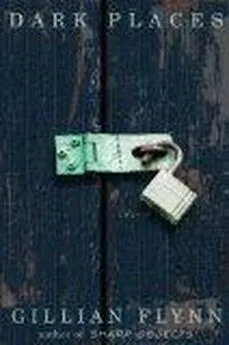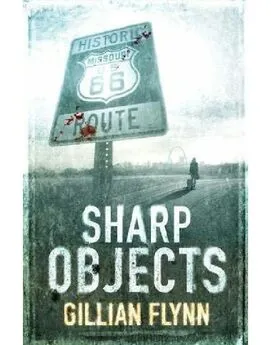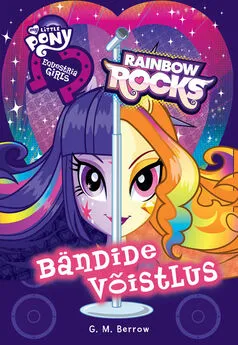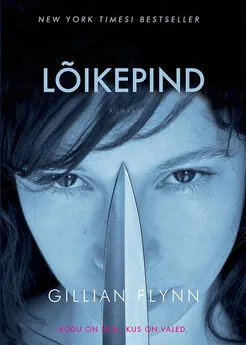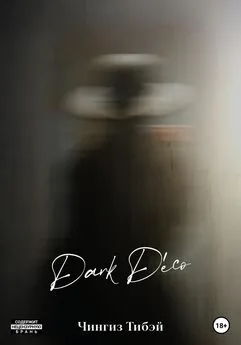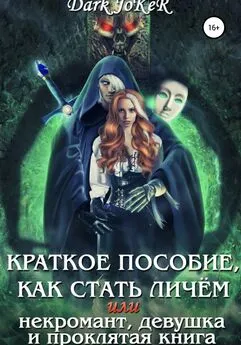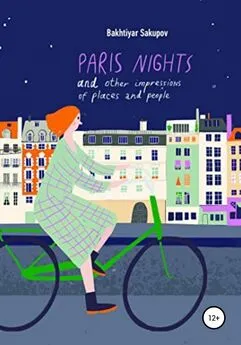Gillian Flynn - Dark Places
- Название:Dark Places
- Автор:
- Жанр:
- Издательство:неизвестно
- Год:неизвестен
- ISBN:нет данных
- Рейтинг:
- Избранное:Добавить в избранное
-
Отзывы:
-
Ваша оценка:
Gillian Flynn - Dark Places краткое содержание
Dark Places - читать онлайн бесплатно полную версию (весь текст целиком)
Интервал:
Закладка:
“Oh God. I just. I was such an unconfident kid. I mean, I was fifteen, Libby. Fifteen. I didn’t know what it was to be a man. I mean, Runner sure wasn’t helpful. I was this kid no one paid much attention to one way or the other, and here all of a sudden, people were treating me like I scared them . I mean, presto chango, I was this big man.”
“A big man charged with murdering his family.”
“You want to call me a stupid fuck, Libby, please, go ahead. To me, it was simple: I said I didn’t do it, I knew I didn’t do it, and—I don’t know, defense mechanism?—I just didn’t take it as seriously as I should have. If I’d reacted the way everyone expected me to, I probably wouldn’t be here. At night I bawled into a pillow, but I played it tough when anyone could see me. It’s fucked up, believe me I know it. But you should never put a fifteen-year-old on a witness stand in a courtroom filled with a bunch of people he knows and expect a lot of tears. My thoughts were that of course I’d be acquitted, and then I’d be admired at school for being such a bad-ass. I mean, I daydreamed about that shit. I never ever thought I was in danger of … ending up like this.” He was crying now, wiped his cheek again. “Clearly, I’ve gotten over whether people see me cry.”
“We need to fix this,” I said, finally.
“It’s not going to be fixed, Libby, not unless they find who did it.”
“Well, you need some new lawyers, working on the case,” I reasoned. “All the stuff they can do with DNA now …” DNA to me was some sort of magical element, some glowing goo that was always getting people out of prison.
Ben laughed through closed lips, the way he did when we were kids, not letting you enjoy it.
“You sound like Runner,” he said. “About every two years I get a letter from him: DNA! We need to get some of that DNA . Like I have a lockerful of it and just don’t want to share. D-N-A!” he said again, doing Runner’s crazy-eyed head nod.
“You know where he is now?”
“Last letter was care of Bert Nolan’s Group Home for Men, somewhere in Oklahoma. He asked me to send him 500 bucks, so he could continue his research on my behalf. Whoever Bert Nolan is, he’s ruing the day he let goddam Runner into his home for men.” He scratched his arm, raising his sleeve just enough for me to see a tattoo of a woman’s name. It ended in -olly or -ally . I made sure he saw me notice.
“Ah this? Old flame. We started as penpals. I thought I loved her, thought I’d marry her, but turned out she didn’t really want to be stuck with a guy in prison for life. Wish she’d told me before I got the tat.”
“Must’ve hurt.”
“It didn’t tickle.”
“I meant the breakup.”
“Oh, that sucked too.”
The guard gave us the three-minute signal and Ben rolled his eyes: “Hard to decide what to say in three minutes. Two minutes you just start making plans for another visit. Five minutes you can finish your conversation. Three minutes?” He pushed out his lips, made a raspberry noise. “I really hope you come again, Libby. I forgot how homesick I was. You look just like her.”
Patty Day JANUARY 2, 1985
11:31 A.M.
She’d retreated to the bathroom after Len left, his livery smile still offering something unsavory, some sort of help she knew she didn’t want. The girls had flooded out of their bedroom as soon as they heard the door shut, and after a quick, whispery caucus outside the bathroom door, had decided to leave her alone and go back to the TV.
Patty was holding her greasy belly, her sweat turned cold. Her parents’ farm, gone. She felt the guilty twist of the stomach that had always made her such a good girl, the constant fear of disappointing her folks, please, please God, don’t let them find out . They had entrusted this place to her, and she had been found wanting. She pictured them up in the clouds of heaven, her dad’s arm around her mom as they looked down on her, shaking their heads, What in the world possessed you to do such a thing? Her mom’s favorite scold.
They’d have to move to an entirely different town. Kinnakee had no apartments, and they were going to have to cram into an apartment while she got a job in some office, if she could find one. She’d always felt sorry for people who lived in apartments, stuck listening to their neighbors belch and argue. Her legs puddled and suddenly Patty was sitting on the floor. She didn’t have enough energy to leave the farm, ever. She’d used the last of it up these past few years. Some mornings she couldn’t even get out of bed, physically couldn’t make her legs swing out from under the covers, the girls had to drag her, yanking her with dug-in heels, and as she made breakfast and got them somewhat ready for school, she daydreamed about dying. Something quick, an overnight heart attack, or a sudden vehicular clobbering. Mother of four, run down by a bus. And the kids adopted by Diane, who would keep them from lying around in their pajamas all day, and make sure they saw a doctor when they were sick, and snap-snap at them til they finished their chores. Patty was a slip of a woman, wavery and weak, quickly optimistic, but even more easily deflated. It was Diane who should have inherited the farm. But she wanted none of it, had left at eighteen, a joyful, rubberband trajectory that had landed her as a receptionist at a doctor’s office thirty mere-but-crucial miles away in Schieberton.
Their parents had taken Diane’s leaving stoically, as if it had always been part of the plan. Patty could remember back in high school, them all coming to watch her do her cheerleading thing one wet October night. It was a three-hour drive for them, deep into Kansas, almost Colorado, and it rained lightly but steadily the whole game. When it was over (Kinnakee lost), there on the field were her two gray-haired parents and her sister, three solid ovals, encased in rough wool coats, all rushing to her side, all smiling with such pride and gratitude you’d have thought she’d cured cancer, their eyes crinkled behind three sets of rain-speckled glasses.
Ed and Ann Day were dead now, had died early but not unexpectedly, and Diane was now a manager in the same doctor’s office, and lived in a mobile home in a tidy trailer park bordered with flowers.
“It’s a good enough life for me,” she’d always say. “Can’t imagine wanting anything different.”
That was Diane. Capable. She was the one who remembered little treats that the girls liked, she never forgot to get them their yearly Kinnakee T-shirts: Kinnakee, Heart of America! Diane had fibbed to the girls that it meant Magical Little Woman in Indian, and they’d been so gleeful about it that Patty could never bring herself to tell them it just meant rock or crow or something.
DIANE’S CAR HORNintruded on her thoughts with its usual celebratory honkhonkhonk!
“Diane!” screeched Debby, and Patty could hear the three girls racing toward the front door, could picture the mass of pigtails and muffin-bottoms, and then imagined them still running, straight out to the car, and Diane driving away with them and leaving her in this house where she would make everything go silent.
She pulled herself off the floor, wiped her face with a mildewy washcloth. Her face was always red, her eyes always pink, so it was impossible to tell if she’d been crying, the only advantage to looking like a skinned rat. When she opened the door, her sister was already unpacking three grocery loads of canned foods and sending the girls out to her car for the rest. Patty had come to associate the smell of brown paper bags with Diane, she’d been bringing them food for so long. That was the perfect example of the fall-short life Patty had made: She lived on a farm but never had enough to eat.
“Got them one of those sticker books, too,” Diane said, flapping it out on the table.
“Oh, you’re spoiling them, D.”
“Well, I only got them one, so they’ll have to share. So that’s good, right?” She laughed and started making coffee. “You mind?”
“Of course not, I should have put some on.” Patty went to the cabinet to find Diane’s mug—she favored a heavy cup the size of her head that had been their father’s. Patty heard the predictable spitty sound, and turned around, pounded the blasted coffee maker once; it always stalled after its third drool of coffee.
The girls came back in, heaving bags up on the kitchen table, and, with some prompting from Diane, started to unpack them.
“Where’s Ben?” Diane asked.
“Mmmm,” Patty said, scooping three teaspoons of sugar into Diane’s mug. She motioned to the kids, who’d already slowed their cupboarding of cans and were peering up at various angles of pretend nonchalance.
“He’s in trouble,” Michelle exploded, gleefully. “Again.”
“Tell her about his, you know what,” Debby nudged her sister.
Diane turned to Patty with a grimace, clearly expecting a tale of genital mishap or mutilation.
“Girls, Aunt D got you a sticker book …”
“Go play with it in your room so I can talk to your mother.” Diane always spoke more roughly to the girls than Patty did, it was Diane playing the pretend-gruff persona of Ed Day, who’d rumble and grumble at them with such exaggerated fatigue they knew even as kids that he was mostly teasing. Patty added a beseeching look toward Michelle.
“Oh boy, a sticker book!” Michelle announced with only slightly overdone enthusiasm. Michelle was always happy to be complicit in any grown-up scheme. And once Michelle was pretending she wanted something, Libby was all gritted teeth and grabby hands. Libby was a Christmas baby, which meant she never got the right amount of presents. Patty would hold one extra gift aside—and Happy Birthday to Libby!—but they all knew the truth, Libby got ripped off. Libby rarely felt less than ripped off.
She knew these things about her girls, but she was always forgetting. What was wrong with her, that these bits of her children’s personalities were always surprising her?
“Wanna go to the garage?” Diane asked, patting the cigarettes in her bosom pocket.
“Oh,” was all Patty answered. Diane had quit and returned to smoking at least twice a year every year since she was thirty. Now she was thirty-seven (and she looked much worse than Patty did, the skin on her face diamonded like a snake), and Patty had long learned the best support was just to shut up and make her sit in the garage. Just like their mom had with their dad. Of course, he was dead of lung cancer not long after his fiftieth.
Patty followed her sister, making herself breathe, getting ready to tell Diane the farm was gone, waiting to see if she’d scream about Runner’s reckless spending and her allowing Runner’s reckless spending or if she’d just go quiet, just do that single nod.
“So what’s up with Ben’s you-know-what?” Diane said, settling into her creaky lawn chair, two of the criss-crossed straps broken and hanging toward the floor. She lit a cigarette, immediately waving the smoke away from Patty.
“Oh, it’s not that, it’s not anything weird. I mean weird, but … he dyed his hair black. What does that mean?”
She waited for Diane to cackle at her, but Diane sat silent.
“How’s Ben doing, Patty? In general, how does he seem?”
“Oh, I don’t know. Moody.”
“He’s always been moody. Even when he was a baby he was like a cat. All snuggly one second and then the next, he’d be looking at you like he had no idea who you were.”
Читать дальшеИнтервал:
Закладка:
